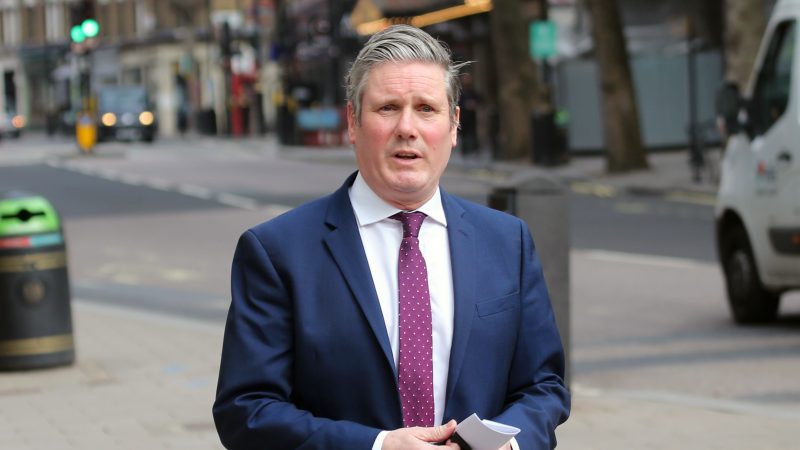
Labour is putting high streets at the centre of its economic plans. Anneliese Dodds announces today the launch of a new commission bringing together experts representing business, trade unionism, the cooperative sector and more to rebuild Britain’s high streets and revitalise town centres. This was an issue before Covid and a more urgent one now. Scottish Labour has approached it with a proposal for a short-term boost: £75 prepaid cards. Welsh Labour has a £90m ‘transforming towns’ programme to pay for adaptations (e.g. heaters), but has gone further than that. It has thought about changes more broadly and in positive ways, exploring community-based, remote-working hubs. The UK commission could develop these ideas with real imagination.
We all know that Labour is struggling electorally with towns, or the people living in them, or both. Lisa Nandy for years identified towns as a key battleground for the party, co-founding a think tank accordingly, and 2019 produced devastating losses that fit her analysis. Next month’s results will be seen as an indicator of whether these old ‘heartlands’ are gone for good or merely being borrowed by the Tories. What is certain is that Keir Starmer will not be giving up on them: the leadership has made the ambitious decision to ensure winning back the so-called “Red Wall” is a key metric of Starmer’s success. So, how does Labour plan to climb that mountain?
The latest Fabian Society report edited by John Healey offers insights. The current Shadow Defence Secretary was also a shadow cabinet member with a big brief under Jeremy Corbyn (housing), but he is one of the most passionately supportive of Starmer’s new direction for the party. His LabourList piece today criticises the party in recent years for “walking straight into political traps” set up by the Tories intent on fighting a ‘culture war’, which is something that Starmer aides raise often. His introduction to the report on winning back the working-class vote also rejects the idea – which Starmer is sometimes accused of adopting – that Labour’s electoral strategy should be simply directed at ‘Red Wall’ seats lost in 2019.
Healey’s central recommendation is that Labour should prioritise “Britain’s real middle: not the middle class that became New Labour’s fixation, nor simply the poorest for whom Labour will always care deeply but who in recent years we’ve given the impression are our sole concern”. He says the focus should be on the ten million people on “ordinary working incomes” that fall either side of the £24,908 median annual earnings. This touches on the theme of a recent Economist piece, shared widely, which quoted Richard from Cramlington (in Blyth Valley, lost by Labour in 2019) saying his £28,000 salary and partner’s £12,000 is enough there for a four-bed house and two cars.
The Labour frontbench is determined to celebrate those middle-income workers, often the same people who kept the country running during Covid. James Murray MP from the Treasury team is today using this to frame Labour’s argument for an ‘Amazon amendment’ to the finance bill. He writes in his LabourList piece: “Amazon workers have helped so many people with deliveries throughout the pandemic; the government should be improving their lives, not giving a huge tax break to their bosses.” Rishi Sunak plans to allow companies to use investment to reduce their tax bills, which Labour says benefits tech giants and firms that treat their employees badly. The party is seeking to add conditions to eligibility for the £25bn ‘super deduction’ tax break.
MPs on the Labour left, meanwhile, have tabled their own amendments to the finance bill today. One of these sees John McDonnell and Richard Burgon try to scrap the ‘super deduction’ altogether. Burgon has written for LabourList to explain his two priorities: changes to the finance bill calling for a new 55% tax rate on all incomes above £200,000 per year and for a windfall tax on companies making super-profits from this crisis. The Labour leadership has so far steered clear of demanding tax rises of any kind because “this is not the time to do it”. But there is now some movement on tax: criticism of the ‘super deduction’ policy suggests it is happy to oppose measures that help the top 1% of businesses, at a time when so many smaller and less exploitative ones have struggled.
At 5pm today, our reporter Elliot will be in conversation with John Griffiths MS, who is restanding in the Senedd elections next month. If you have any questions for him, on Welsh politics or Labour’s campaign, ping them over to us by email – and remember to tune in.
Sign up to LabourList’s morning email for everything Labour, every weekday morning.



More from LabourList
Government abandons plans to delay 30 local elections in England
‘The cost of living crisis is still Britain’s defining political challenge’
‘Nurses are finally getting the recognition they deserve’